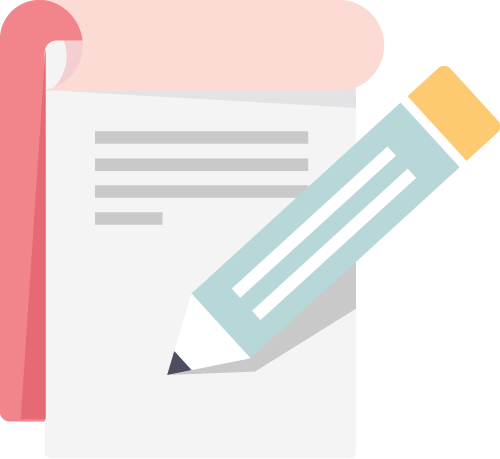When sending out an RFP to training companies to source corporate training services and solutions, it’s typical for decision makers to first understand what potential options exist in the marketplace. The mechanism for seeking that understanding is a request for proposal, or RFP.
What is an RFP (Request for Proposal)?
With scores of systems and solutions available, the Learning Management Systems (LMS) industry is a highly competitive space. When there are several alternative LMS and training solutions that a company could acquire, the evaluation team must assess each of them objectively and equally. Companies use training RFPs to clearly spell out the key requirements of the solution that procurement teams are looking for.
Sending an RFP to training companies is the first step to inform your decision-making process about possible solutions available to you. When putting together an RFP for training services, a best practice is to include a template to simplify the bidding and evaluation process. An LMS RFP template also serves as the framework for prospective suppliers to respond to the company’s request for proposal.
It might be worth noting that the scope of an RFP for training services is broader than a request for quote (RFQ) for similar services. In the former, one objective is to learn what potential solutions exist to fit your training needs. In the latter document, you (more or less) know what you want, but need price and cost quotations from qualified vendors to source your needs.
The RFP Process
The process of requesting proposals for training solutions is similar to—though not necessarily identical—to that used to solicit proposals in other industries. The RFP process typically includes the following steps:
- Needs assessment—conducted prior to writing the RFP to understand the company’s needs
- Writing the RFP
- Publishing/circulating the document among prospective responder groups
- Proving an opportunity to prospective respondents for seeking clarifications
- Receiving responses
- Evaluating the quality and substance of responses provided in the RFP training template
- Seeking clarifications or requesting additional information from respondents
- Evaluating the LMS RFP template against corporate needs
- Deciding on the winning solution
- Communicating your decision to the winner (and, optionally, all other bidders)
While the above lays out a broad RFP process, depending on the complexity and extent of the needs, each company may modify the content, timelines, and process to fit their unique requirements. For instance, an RFP for a two-week training course on Google Sheets may not require an extensive needs assessment or proposal writing effort. The team may, therefore, combine steps 1 and 2. On the other hand, an RFP for diversity training across multiple jurisdictions may involve additional steps, such as researching, mandating, and evaluating the cultural and legal credentials of the bidders.
Additionally, your evaluation process may also differ from project to project. An RFP for diversity training might include multi-stage evaluations. However, the process of evaluating an RFP for the less complex Google Sheets training might be relatively straightforward.
What to Include in Your RFP for Training
When developing your RFP for training and development, it’s important to request and receive all relevant details to help you make an informed decision on which product or service to pick. A typical sample RFP for training must include, at minimum, the following sections:
- Project overview—setting out what your intent and purpose is for the RFP
- Detailed needs and requirements—covering a detailed outline of what you need, including major deliverables and scope of work
- Evaluation criteria, rating, and scoring—outlining how you plan to evaluate each proposal
- Samples and examples—including an RFP template for respondents to follow
- Guidelines—offering detailed instructions on how to complete each section in the template
- Timelines—governing major milestones within your RFP process, including submission, evaluation, selection, negotiation, and project initiation and completion timeframes
- Pricing—though not always mandatory, providing high-level RFP for training and development cost estimates may result in proposals that more closely fit your budgetary constraints
One of the most important components to include when sending an RFP to training companies is a sample RFP for training. Though relatively less important when sourcing low-level training services, such as a course on Resume Writing; including a filled-out sample LMS RFP template can help LMS suppliers respond more precisely to your training needs.
Also, though not always applicable, some RFP administrators may include disqualification guidelines. This ensures prospective vendors don’t indulge in undue pressure or solicitation that taints the selection process. To ensure the best possible outcome from any RFP process, it might be a good idea to have key members of the team attend RFP proposal writing training.
Be flexible
Where possible, a request for proposal should conform to strict guidelines around content, presentation, and formatting. By not enforcing a standard structure on the responses you solicit, you may receive all the information you requested—but in a myriad of formats. This makes the process of evaluating any RFP for training services extremely tedious and time-consuming.
However, some valuable details such as Success Stories, Product Roadmaps, or highlighting vendor competitive advantages might not easily conform to strict formatting guidelines. To ensure vendors do provide you with such details, you must also allow some flexibility within any RFP evaluation process.
Free RFP (Request for Proposal) Template
Looking for a template for your RFP for corporate training? Download ours here:
"*" indicates required fields
Need Help?
Are you looking to establish a continuous learning culture in your organization? We can help. If you are considering putting together an RFP for training and development, then talk to us first—we can certainly support you.
Already have an RFP? Let us know about your eLearning Project here. We may also be able to share some thoughts about how we might help you improve or enhance your project outcomes.






